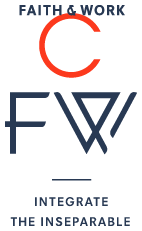
Blog
2016
Faith & Work
Conference:
Call for
Papers
Theme to Explore:
This November 10-12, the annual conference hosted by the Center for Faith & Work will examine the theological implications of our vocational relationships with evolving technology.
The word technology itself bears so many associations that its essence has been rendered at once elusive yet pervasive, covering a range of definitions while still occupying shadowy, subjective territory. With this, finding common ground can be tricky. But perhaps a starting point is in examining technology’s potency.
Technology – both theoretically and practically – has staked its claim in our cultural moment. It is here to stay. This dominance has fostered much positive innovation, yet also exposed a great deal of fear and anxiety about our future. Technology's pioneering voices themselves have claimed that A.I. could spell the end of the human race. For Christians, this fear bears special examining. If justified, what might this say about the cultural mandate, the incarnation, or the imago dei? If invalid, what kind of history has brought us to a point of believing that technology will reign over humans as opposed to the other way around? A big, general question underlies all the rest: is technology at odds with tradition?
Or perhaps the problem is us and our through-a-glass-darkly vision. What has been coded into humans that we now so often greet technology with fear? As William Faulkner stated in his 1950 Nobel Prize acceptance speech, shortly after the creation and detonation of the first atomic bomb:
Our tragedy today is a general and universal physical fear so long sustained by now that we can even bear it. There are no longer problems of the spirit. There is only the question: When will I be blown up?... I decline to accept the end of man... I believe that man will not merely endure: he will prevail. He is immortal, not because he alone among creatures has an inexhaustible voice, but because he has a soul, a spirit capable of compassion and sacrifice and endurance... It is his privilege to help man endure by lifting his heart, by reminding him of the courage and honor and hope and pride and compassion and pity and sacrifice which have been the glory of his past. The poet's voice need not merely be the record of man, it can be one of the props, the pillars to help him endure and prevail.
Faulkner's concern and call still echoes loudly today, as our collective anxiety continues to climb.
But when it comes to today's technology, more specific inquiries are prodding the theological realm for greater nuance and application. Can invention function as a bridge between the immanent and the transcendent? What might that say about big data, the phone in our pocket, the guiding principles that create an operating system? How are these questions answered by a theistic humanist as compared to a secular humanist?
Artificial intelligence, is, after all, hard-wired by positivism, headstrong in its rational assertions, ardently, empirically driven. But with its pioneering attitude – its postulations of singularity, in the felt pervasiveness and inevitability of technology's dominance – has A.I. discovered a metaphysic all its own? What, if anything, could theological tradition say about all this?
The Center for Faith & Work is accepting proposals for papers that address the above. We're not looking for writers to comprehensively answer every question and subject mentioned, but rather to come at the topic from a unique or provocative angle. (The above is merely meant to provide an idea of where we're coming from.)
Our hope is to develop some new thought on the intersection of faith and technology, to wisely examine the future of work, and to dispel current normative models that spawn fear.
Details:
To apply, please submit your proposal of 750-1500 words by June 1, 2016 using THIS FORM. You’ll be instructed to include your name, contact info (address, email, and phone number) and institutional affiliation in your submission, and will be asked to upload a recent resume or CV.
- Chosen proposals will be notified by June 15th and given a subsequent deadline of August 31st to submit their completed paper.
- Selected papers will receive RT travel to and from New York City, 2 nights lodging, and the opportunity to present the completed work at the 2016 Faith & Work Conference.
If you have questions, please contact us at cfw@redeemer.com for additional information.
